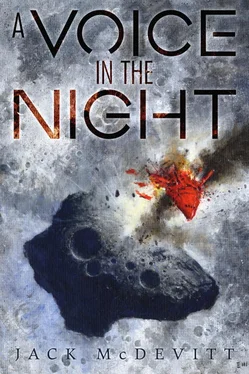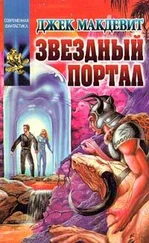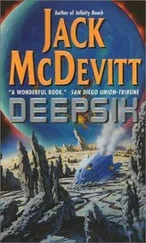
Henry Cable was, if anything, true to his word. When he told people he was going to do something, they could, as the saying goes, put it in the bank. So alarm bells went off when he failed to show up for the Victorian Club luncheon, at which he’d been the featured speaker. He not only failed to show up, he didn’t warn anyone. The liaison, Mrs. Agatha Brantley, was left to make apologies as best she could.
For Cable, it was unheard of.
He didn’t answer his phone. And when, after the luncheon had staggered to a desultory end and a worried Mrs. Brantley went to his house, she got no answer. At that point she called us. “Something’s terribly wrong,” she told the watch officer. There was of course nothing we could do. So she took charge. She got on the phone, located Cable’s maid service, and persuaded them to come early and open up. The place had been ransacked. And there was no sign of Cable. She called us again.
When I got there, she was visibly upset. “The luncheon was at the Lion’s Inn,” she said in a shaky voice. “We kept waiting for him, and waiting for him, and he never arrived. “
Cable was a literature professor at the University of Edinburgh. He’d written some books and did guest columns occasionally for the Edinburgh Evening News . He lived in Morningside, in an upscale manor with broad lawns and a fountain and a long arcing driveway. A statue of a Greek goddess, or maybe just a naked female, stood in front.
The senior officer present was Jack Gifford, probably the tallest man in Edinburgh. “Can’t find where they broke in, sir,” he said. “He must have let them in.”
“How about his car?”
“There’s no automobile here.”
He put out an all-points for the car and we went inside. Drawers had been torn out and cabinets opened, their contents dumped on the floor. With Agatha in tow, I climbed the stairs and looked at the bedrooms. The beds were made. Whatever had happened had apparently occurred the previous day.
The living room was spacious, with a high ceiling. Packed book shelves lined the walls, but a lot of the books had been pulled out and thrown on the floor.
A long leather sofa and matching armchairs were arranged around a coffee table. The table had been pushed onto its side and its two drawers removed.
There was no sign of Professor Cable. But the good news was there was no blood anywhere. Gifford poked his head out of a side room and motioned me over. The room must have served as Cable’s office. There was a desk and a side table, piled high with books, magazines and note cards. A second table held a keyboard and a display screen.
“But no computer,” I said.
Harry nodded. “My thought exactly, Inspector.”
“It’s not possible.” Ms. Brantley looked helplessly around at the floor, littered with the contents of desks and drawers. “Things like this just don’t happen.”
Unfortunately they do.
We checked his calls. There’d been three early the previous evening: one to McDonough Books downtown; one to Madeleine Harper; and one to Christopher McBride. “Madeleine is an old friend,” said Agatha. “He was her mentor.” And McBride, as the whole world knows, was the creator of Sherlock Holmes.
We found Ms. Harper at her home in a Bruntsfield town house. She was an attractive woman, about forty, with blonde hair, moody blue eyes, and a worried smile. “I do hope nothing’s happened to him,” she said.
“As do I.” I would have liked to be reassuring, but the circumstances didn’t look promising.
Her living room could have been right out of Cable’s place, but on a smaller scale. Two book cases were overflowing. Books and magazines lay on every flat surface. She had to move a few to make room for us to sit. “Tell me what you can about him,” I said.
“Henry’s a good man.” Her voice trembled. “He spent thirty years at the University. He’s published a half-dozen major biographies. He’s one of the kindest—.” Her voice broke and she fought back tears. “Inspector, please do what you can for him. If anything’s happened to him—.”
“I understand. Is he still teaching?”
“He retired three years ago.” She closed her eyes for a moment. “No, I think it’s more like five.”
“Okay. Thank you.”
“Time goes by so quickly.”
“I know. So now he just writes books?”
“And does speaking engagements. Lately he’s been working on a biography of Robert Louis Stevenson.”
That sounded rousing. I wondered briefly how many Stevenson biographies were already in existence. “Ms. Harper, do you have any idea what might have happened to him today? Have you ever known him to drop out of sight like this before?”
“No.” She shook her head and tears rolled down her cheeks. “Never. I don’t believe it yet.”
“Does he have any enemies?”
“There’s no way he could avoid it, Inspector.”
“How do you mean?”
“He’s a literary critic. Sometimes he says things that upset people. But I can’t believe any of them would resort to something like this.”
“Did he ever write about the Holmes stories?”
“Sherlock Holmes?”
“Yes.”
“Not that I know of.”
“Very good. Ms. Harper, I’m going to ask you to provide me with a list of people who might have harbored resentment against him. Will you do that for me?”
“I can try.”
“Good.” Outside, a child ran by with a kite. “When was the last time you talked to him?”
“He called me Friday evening.”
“May I ask what you talked about?”
“We’re going to the Royal Lyceum next weekend. To see King Lear.”
“I see. Anything else?”
“Not really. He asked me to try to be ready when he got here. He always claims I’m slow getting out the door. It’s sort of a running joke.”
“And that’s all you talked about?”
She started to say yes, but stopped. “As a matter of fact, there was something more. He mentioned a surprise.”
“A surprise?”
“Yes. He said he had a surprise for me. Big news of some kind.”
“Have you any idea what he was referring to?”
“None whatever.”
“Had you been planning anything?”
“Other than King Lear ? No.”
“Did it sound as if he was talking about good news? Something personal between you, perhaps? If you’ll forgive me.”
“It’s quite all right, Inspector. But no, I didn’t get the impression it was about us. It was something else.” She sat for a long moment, gazing wistfully through the window at the cluster of trees in her front garden. “He sounded, not angry—.”
“But—?”
“—He gets on a horse sometimes. A crusade, if you understand what I mean. Henry Cable off to right the wrongs of the world.”
It was as far as we got. I asked her to call me if she thought of anything further.
There was a picture of Cable on a side table. He looked amiable, with white hair and spectacles and an easy smile. He almost resembled Eliot Korman, who was playing Dr. Watson in the Holmes film that had just arrived in theatres.
I got up to leave and gave her my card. “If he contacts you, I’d be grateful if you’d inform me. And let him know we’re looking for him.”
“Of course.”
Читать дальше











